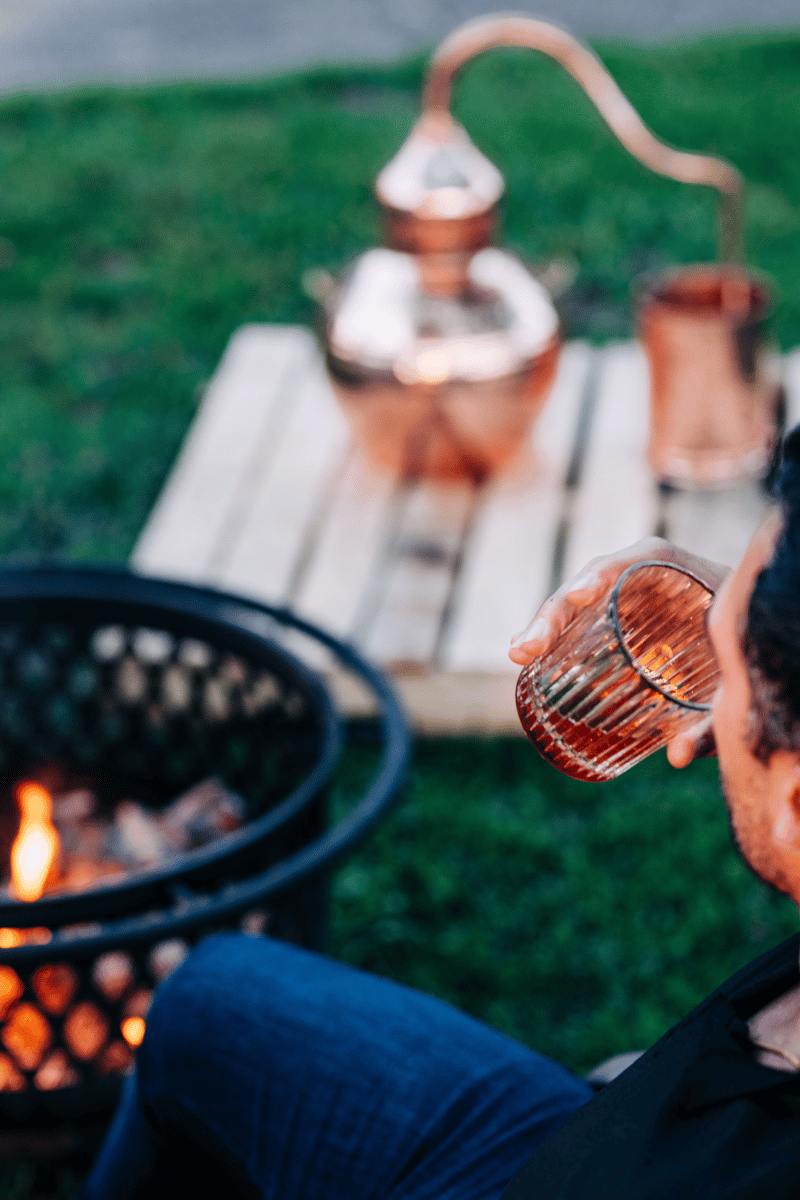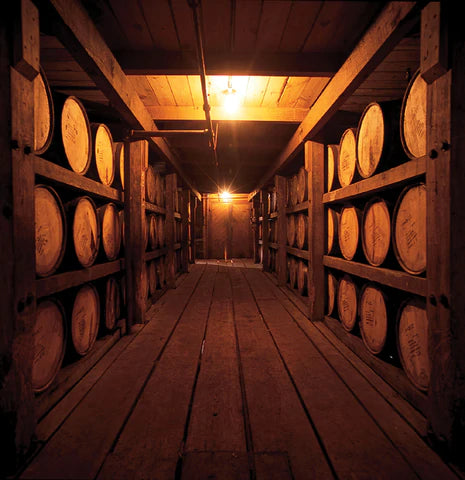If you’re a true enthusiast, you’ve probably heard the word “craft” used to describe whiskey. But what makes a whiskey “craft”? How do you tell “craft” whiskey apart from regular old whiskey? We’re here to break it down for you with six things you should probably know before you start your home distilling journey.

The process is the first and most important thing that makes craft whiskey special. It’s non-traditional and non-mechanized. In other words, it’s done by hand. (For the most part.) Machines aren’t used for anything other than heating the mash – or mixture of fermented ingredients. If at all. Most spirits today are made with machines, if only because it’s easier. Not to mention streamlined. Though machines make for consistency from one batch to the next, there’s something to be said about the good, old-fashioned fruit of your (manual) labor.
Great craft whiskey takes great attention and care. It’s something made, not manufactured. It’s about transforming basic ingredients into something incredible. And it takes real skill. (And grit.)

The distilling process is extremely delicate. Every batch of craft whiskey is different. But make one wrong adjustment, and you could ruin a whole run. Don’t let that scare you though. Once you get your process down, you’ll be able to make the perfect spirit for your taste.
Distilling craft whiskey not only takes skill but careful patience. You might experience a trial-and-error period, but if you do your research and take your time perfecting your process, you won’t regret it.
One of the best ways to start learning the tips and tricks of the trade is to try out the craft whiskey of other distillers. (We’ll share our recommendations later.) So you know what you like and don’t like, if nothing else. But also for inspiration to take to your own process and recipes. To make a quality craft whiskey, you’ll need to know what a quality craft whiskey tastes like. Many distillers brew craft. And you can’t go wrong when looking for ideas to improve your craft.

Craft distilling has become a trendy pastime. But as you’ve probably gathered, not every popular distiller makes “craft” brews. Another thing that makes craft whiskey different (and better, if you ask us) is that it’s not about marketing. Craft distilleries will never focus on packaging or promotion more than they do the actual whiskey. The attention is on the recipe, the process, and the results.
Distilling is the perfect combination of science and art. Measurements and temperatures need to be considered. But the passion really grows from the experience itself. Whether or not a batch works out, you’ll be able to enjoy the journey. As you learn what works and what doesn’t. And find new ways to fine-tune the flavor to your liking.
One of our favorite American distillers, St. George Spirits puts it perfectly when describing the art of whiskey-making: “Distilling is our form of self-expression.”

Craft whiskey is made only from raw, unprocessed ingredients sourced locally (whenever possible). Great whiskey needs only four ingredients: sugar, yeast, water and grain. One of the most common ways to change the flavor of whiskey is to change the type of grain.

Corn is most often used in whiskey. For bourbon, corn must make up at least 51% of the grains used to distill. Other popular grains include rye, barley and wheat. Each of these brings its own flavor to the whiskey. If you want to change the taste of your next batch, try changing the grain. Or even using a mixture of more than one.

Besides the main ingredients mentioned earlier, the sky’s the limit when distilling whiskey. Our favorite part about craft distilling is the freedom to fiddle.
Craft distilling is about innovation. Doing things that haven’t been done before and taking risks. Like we said earlier, every batch of craft whiskey is unique. You can run your batch through the still more than once. Adjust the water-to-grain ratio for more or less alcohol content. Or change your grain combination.
And if you don’t want to dabble with different grains, you can always try adding new ingredients. Both during and after distillation. One of the easiest ways to change the flavor of your whiskey is to add elements during storage. Anything from herbs and spices to fruit and baked goods, even coffee can give a twist to the taste of your whiskey.
Many craft distillers choose to age their product. Keep your finished whiskey in a glass jar or wooden barrel for anywhere from a few months to several years. Time will naturally take the flavor to another level. (Though you can enjoy your whiskey straight from the still if you prefer.) If you don’t have a wooden barrel, you can put a piece of charred oak in a mason jar and age it for the same effect. For varied flavors, try different species of oak.

(Specifically, good whiskey comes in small batches.)
Though the above factors are essential in talking about craft whiskey. Most often, the word “craft” is used when describing products made by distillers who produce no more than 750,000 gallons per year.
Different distillers and organizations have other parameters for this label. But the common idea is that “craft” generally means small-scale. Most of the time – especially for home distillers – this also means small batch. Each run makes a relatively small amount. Our largest still here at Whiskey Still Pro has a 10-gallon capacity. Perfect for distilling manageable batches of your own craft whiskey.
Now before you head off to start (or continue) perfecting your craft. Take a look at some of our favorite craft distillers. Tasting some already-awesome craft whiskey is the perfect place to begin your journey to greatness. And if you’re a home distilling pro, we recommend looking at some of these big names for inspiration as you adjust and add to your recipe repertoire. Maybe you’ll find some ideas to make your favorite mashes even better! And remember, just because a company has a recognizable name doesn’t mean they don’t make bona fide craft whiskey.
Our favorite craft distillers (in the USA)
Did you know? Craft spirits are on the rise. Craft distillers are on pace to surpass big-batch distillers in per-year production. And whiskey accounts for over one-third of the craft alcohol produced in the U.S.

Check out our favorite craft distillers. Listed in no particular order.
NORTH
-
Dry Fly Distilling
Spokane, WA. Dry Fly makes whiskey from grains sourced locally, no more than thirty miles from the distillery. They got their start in 2011 and offer a large selection, from whiskey, gin and vodka, to canned cocktails.
-
Koval Distillery
Chicago, IL. Koval was founded by husband and wife business partners. In 2008, they were the first distillery to open in Chicago in over 100 years. They produce organic whiskey, gin and liqueur.
-
FEW Spirits
Evanston, IL. FEW focuses on quality over quantity, with a small team that makes small batches. They’ve been producing whiskey, bourbon and gin in a Chicago suburb since 2011.
-
Tom’s Foolery Distillery
Burton, OH. Tom’s started out in 2008, distilling only brandy made from apples. They’ve since expanded their selection to whiskey, bourbon and gin.
SOUTH
-
Balcones Distilling
Waco, TX. Established in 2009, Balcones got its start off the beaten path in a repurposed welding shop. Their selection includes a range of traditional whiskeys. Along with a variety of special, short-run batches.
-
Firestone & Robertson Distilling Co.
Fort Worth, TX. Firestone & Robertson produces one of the most well-known whiskey brands in the Lone Star state, Tx Whiskey. Since 2010, they’ve been favorited for their unique bottle caps, whiskey blends and bourbon.
-
Corsair Distillery
Nashville, TN. The classic small business startup story. Corsair was a garage passion project that turned official in 2010. They make both bottled and canned whiskey and gin.
-
Barrell Craft Spirits
Louisville, KY. Founded by a long-time entrepreneur in 2013, Barrell specializes in finishing and blending. They have a wide range of regular and limited-run batches of whiskey, bourbon, rye and rum.
CENTRAL
-
Stranahan’s
Denver, CO. Stranahan’s was the first (legal) Colorado whiskey distiller post-prohibition. Built from a partnership between a brewery owner and a volunteer firefighter in 2004. They focus on a small selection of single-malt.
-
Breckenridge Distillery
Breckenridge, CO. Breckenridge proudly boasts the title of the world’s highest-altitude distillery. They started in 2008 and produce a range of spirits, including bourbon, whiskey, gin and vodka, along with a handful of mixers.
-
High West Distillery
Park City, UT. A married duo started High West in 2006. Utah’s first legal distillery since 1870. They’re located in a historic livery stable and garage. Focusing on whiskey, bourbon, rye and ready-to-drink cocktails.
-
Virginia Distillery Co.
Lovingston, VA. Founded by an Irish businessman in 2011. But loyal to American distilling tradition. Virginia crafts a small selection of whiskeys and bourbons aged in various casks.
_______________
Many of these distilleries offer tastings and other educational opportunities for those interested in the process of craft distilling. In addition to products available for local purchase and shipping.
Did we miss one of your favorites? Let us know!
We’re always looking for more reasons to try quality craft whiskey.



